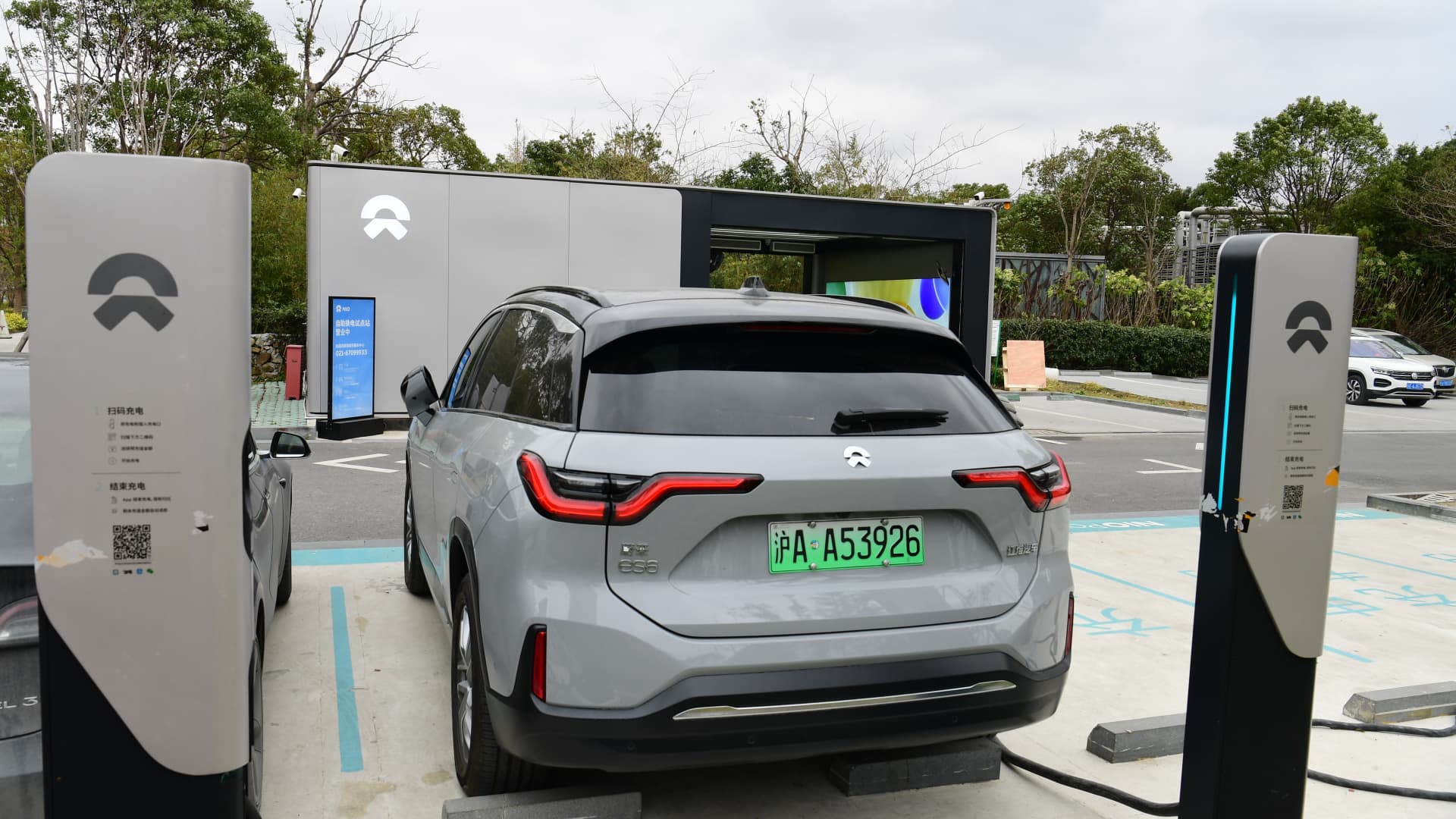BEIJING — Nio‘s biggest challenge right now is making sure that supply chains are stable, CEO William Li told CNBC.
The Chinese electric carmaker has had to charge customers more due to soaring prices of raw materials.
When Covid controls in April prevented Nio’s from getting parts from suppliers, the company had to temporarily suspend production. But the company said it was able to restart some production a few days later.
Still, as of Thursday, Li still described the overall state of auto production in China as in the process of recovery while Shanghai and other parts of the country remain under Covid controls.
On the sales front, Li said he expects consumer demand for electric cars to persist — even if the Chinese government reduces subsidies or other policy support for the sector.
Nio delivered more than 5,000 cars in April despite Covid restrictions, albeit down sharply from nearly 10,000 vehicle deliveries in March.
Passenger car sales fell by 35.5% year-on-year in April, but new energy vehicles — which include battery-powered electric cars — saw sales surge by 78.4%, according to the China Passenger Car Association.
Nio’s Southeast Asia plans
Li, who is also Nio’s founder and chairman, was speaking in an interview with CNBC’s Emily Tan ahead of the company’s secondary listing in Singapore.
On Friday, Nio carried out a secondary listing on the Singapore Stock Exchange by way of introduction — which differs from an initial public offering as no new capital is raised and less paperwork is required. Instead, the listing primarily allows investors to trade the company’s shares on an exchange other than the main trading venue.
In early March, Nio also carried out a secondary listing in Hong Kong by way of introduction. The company’s first and primary listing venue remains the New York Stock Exchange.
The auto executive did not elaborate on why the company chose Singapore as the third listing venue, but said Nio could reach more investors this way.
But Li said Nio plans to export cars to Southeast Asia and open a research and development center in Singapore in the near future for artificial intelligence and autonomous driving. He did not provide specific dates.
So far, the company has focused much of its overseas expansion on Europe, primarily in Norway.
The start-up’s main trading venue remains the NYSE, where the company held its initial public offering in 2018.
U.S.-listed shares of Nio have climbed by about 150% since that IPO — a volatile three-plus years that’s included several quarterly plunges and one full year in 2020 that saw a surge of over 1,100%.
